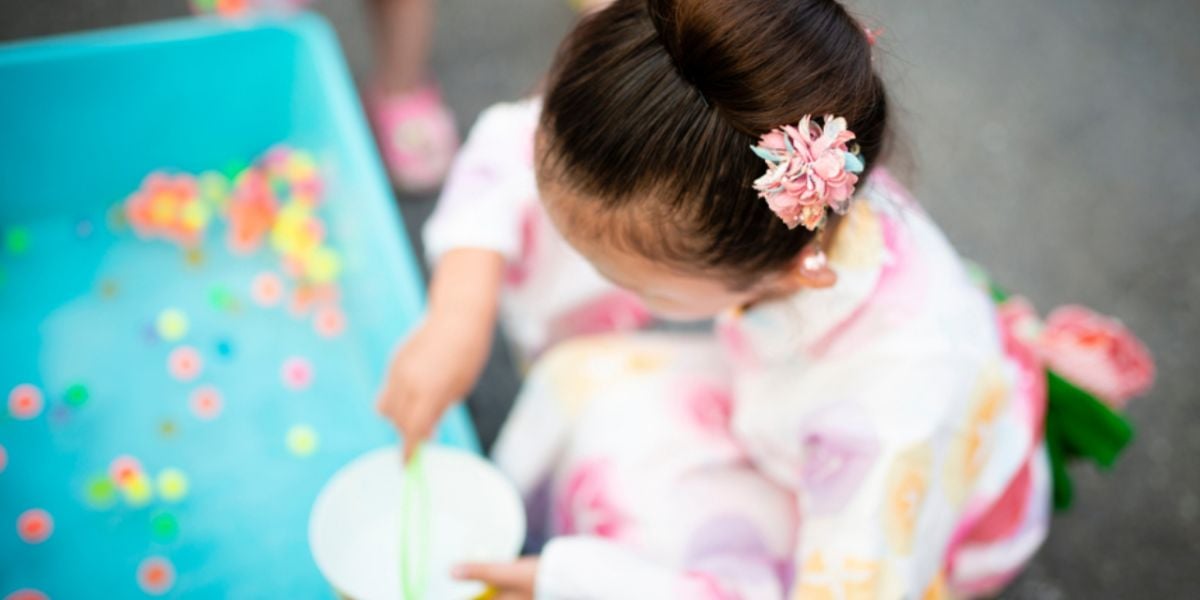
So, you have decided to move abroad with your family, but how can you get ready for this new adventure? How can you ensure your children are well-prepared and involved in the process? Check out these essential step-by-step guidelines to assist you in settling into your new life in Japan.
Before moving to Japan
Moving to a new country by yourself is quite an adventure, but with a family, everything goes up three- or fourfold. There's a lot to think about, from learning a new language to ensuring your children's education or pursuing higher education. Let's not forget about your partner – what are their thoughts on this big move? Before booking your plane tickets to Japan, carefully plan and prepare for this exciting journey.
Questions to ask yourself before going to Japan
Japan is a dream for many. Some are satisfied with one or several short trips. Others are more inclined towards long-term immigration, but where did the idea spawn?
Assess your move to Japan plan
- Are you the instigator of the “Japan project”, or is it a common one that you nurtured with your partner and/or your children, whether they are college students or teenagers?
- Is your project part of an international contract? If so, will you benefit from intercultural coaching?
- How old are your children?
- Have you ever been to Japan as a family?
- Do you and your partner speak Japanese? Are you learning it now, or do you plan to learn it once in Japan? What about your children?
- What do you like about Japan?
- Have you ever taken a long trip with your family?
- Is Japan your first expat country?
- Are you considering seeking help from an expat coach?
Your family back home
In any moving abroad plan, there are those who leave and those who stay. Other family members and friends are just as involved as you are. What do they think of your choice? Involving them in the project could trigger a positive momentum.
Dependent visa in Japan
To bring your children and your spouse along with you, you will need to have a work visa for Japan and then apply for “dependent visas” for them. Most work visa holders are eligible for the dependent visa, especially if they hold a teacher's visa, journalist's visa, investor's visa, medical profession visa, researcher's visa, engineer's visa, qualified employee's visa, or if they are people exercising a religious or cultural activity.
Holders of the student visa for Japan are also eligible for the dependent visa. However, the latter is reserved for a category of students, including doctoral students, master's degree students, research students, and senmon gakko students.
Getting a work visa in Japan is generally very complicated, but it is not impossible! Put all the chances on your side by learning Japanese and having proven professional experience. Ask yourself what would trigger a Japanese employer's desire to sponsor you.
Permanent residents in Japan have the privilege of residing in the country along with their minor and unmarried children, whom they can take care of as dependent children. These dependent children are eligible to obtain a “Spouse or Children of Permanent Resident” visa, a “Long-Term Resident” visa, or a “Permanent Resident” visa.
Long-term residents in Japan can reside with their minor and unmarried children to care for dependent children. The dependent children will be eligible for a “Long-Term Residence” visa (source: Family visas in Japan).
Intra-company transfer to Japan
An expatriation contract is definitely an option that could well make things easier for you. It implies that the company you work for in your home country sends you to one of its Japanese subsidiaries. This contract might allow you to move with your family. Take the time to gather all the information you need to better negotiate your contract.
You can add clauses, such as the “cost of living”, which is very useful in current inflationary times. Think about your partner. Will they have to quit their job and be a trailing partner? Do they speak Japanese? They can benefit from language classes and even help find a new job in Japan.
The same goes for the children! It will, at some point in time, boil down to childcare, schooling, sports, and cultural activities. In your contract, mention everything that you think is essential to your life as an expat in Japan. In terms of health, your company can also take care of your expat health insurance.
On the administrative side, your company can take care of all or part of the visa procedure, move and settle in your new Japanese city, and deal with the city hall. The company can also provide intercultural coaching for you and your family.
Of course, each company has its limits. Few companies will offer you a golden expatriation package.
Living with your family in Japan
Finally! You are in Japan. After a few days of well-deserved rest, it's time for your children to return to school, but to which one? Will you choose the Japanese education system or an international school?
The Japanese school system
In Japan, there is a wide range of educational institutions available. These include early childhood education and care centers (ECEC), kindergartens, elementary schools, lower secondary schools, compulsory education schools, upper secondary schools, and schools catering to special needs education. Moreover, there are also higher education institutions like universities, junior colleges, colleges of technology, and specialized training colleges.
In Japan, formal education begins at 6 when children join an elementary school for 6 years. Then comes junior high school, which lasts 3 years. Teenagers continue their education in high school for 3 years and then can go to university for a short or long course of study if they wish. They can also opt for senmon gakko, technical schools, from high school to higher education.
The Japanese school year starts in April and ends in March of the following year. The child's age on April 1 determines the grade of schooling. Before elementary school, no education was required by law, but there are many childcare options in Japan, especially if you live in an urban area. Of course, the options vary depending on budget, location, and family situation.
Pros and cons of the Japanese school system
In local schools, children are better and faster integrated into their new life. They follow the rhythm of all Japanese children, participate in the same activities, and master the language more easily. By living the Japanese way, they better assimilate the local cultural codes.
On the other hand, parents fear that their children will have difficulty re-adjusting when they return to their country of origin and that their education will not align with international standards.
They also fear discrimination and harassment (ijime) that the children might suffer. Ijime is the scourge of national education in Japan. Japanese youth are the first to suffer from it. Adults also suffer from it, mainly in the professional world.
International schools in Japan
This is a huge debate that keeps stirring up expatriate parents in Japan. Should parents enroll their children in a local school or an international school? Of course, it is understood that Japanese schools are not reserved for Japanese, just like international schools are not reserved for foreigners.
Pros and cons of international schools
Expat children enrolled in an international school will not be disoriented when they have to go back to the school system in their home country, but when living in Japan, these children run the risk of being disconnected from local realities. For example, the school year starts in September at the French high school, just like in France. Vacations are also inspired by the French model. In this case, it is difficult to adapt to the Japanese rhythm.
Childcare in Japan
Health check and vaccination for children in Japan
Children's health check in Japan
For your baby's health check and vaccination, visiting a pediatric clinic instead of a large hospital is best. Pediatricians specialize in treating children up to 15 years old and can address most of your child's concerns. If necessary, they will refer you to a specialist.
Some pediatricians require appointments, so check and make a reservation if needed. In case of emergencies, go to an emergency pediatric clinic. Most cities have at least one that operates during nights and holidays.
To find an emergency clinic, visit the website of your local medical association, known as an Ishikai. Please note that many of these websites are only available in Japanese.
You can also call #8000 to speak with a nurse or pediatrician about your child's condition and whether it is necessary to immediately take them to a clinic or hospital. Please note that this service is primarily offered in Japanese.
If your child is seriously ill or badly injured, call 119 for an ambulance anytime, day or night.
Immunization for children in Japan
There are two types of vaccinations for children in Japan:
- standard vaccination: BCG, PCV (Pneumococcal vaccine), DTP-IPV (Diphtheria, Tetanus, Pertussis, and Injectable Polio), MR (measles and rubella), Japanese encephalitis, Chickenpox, Hib, HPV, Hepatitis B;
- optional vaccination: Seasonal influenza, Mumps, Hepatitis A, Rotavirus, Meningococcus.
Standard vaccinations are free with vouchers from city health centers. Health centers will mail vouchers to your home. Then, you can schedule appointments with designated local pediatricians for these vaccinations. Remember to bring the vouchers and Mother and Child Handbook to your appointments.
Costs of optional vaccinations vary depending on the vaccine.
Japanese insurance for your children
In Japan, children can be covered by National Health Insurance or Social Health Insurance just like adults. You can include your children in your insurance plan. You can handle National Health Insurance at your local city or ward office. For Social Health Insurance, you can ask your company's representative to add your child as a dependent.
Japanese insurance covers 70% of medical expenses, and the remaining 30% is your responsibility as an adult. However, children can apply for a free Medical Care Certificate for children from the city or ward, which covers the remaining 30%. This certificate is valid until the child turns 15, but this age limit varies from city to city.
Insurance does not cover vaccinations and baby checkups, but your ward or city office provides coupons to help with these costs.
Private and public childcare centers in Japan
This issue is a headache for all parents. In Japan, childcare facilities for children are few, and when they are available, they are expensive.
There are two types of daycare centers in Japan: private and public. The age range is from 0 to 5 years old, and there are no separate age groups.
Private daycares do not have a waiting list. Some municipalities offer partial financial support. To apply for public daycare, check with your local city hall.
Public daycares are free and are for people with low income or those in need of financial support. However, it is very difficult to get a place for your child.
Nurseries and kindergartens in Japan
International, multilingual, traditional institutions? There are many types of kindergartens in Japan to choose from.
There are two types of schools: nursery schools (保育園 / hoikuen) and kindergartens (幼稚園 / yochien). Nursery schools are child welfare facilities under the Ministry of Health, Labor, and Welfare, while kindergartens are educational facilities under the Ministry of Education, Culture, Sports, Science, and Technology.
Early childhood education and childcare in Japan became free in October 2019. However, not all kindergartens and nursery schools are free. The conditions vary depending on whether your children attend a kindergarten or a nursery school.
Licensed nursery schools are entirely free for children aged 3 to 5. Kindergartens covered by the new child and child-rearing support system are also free, but those who are not eligible have a monthly fee cap of 25,700 yen.
Private nannies
Private nannies in Japan can be hired on a long- or short-term basis. In most cases, nannies are hired for children under kindergarten age, but in some cases, nannies can take care of older children.
Additional tips for moving to Japan with your family
Ideally, you and your spouse should learn Japanese. Take a few classes before leaving and continue learning once you arrive in Japan. Do not rely on English only.
Be mindful of your children's welfare. Racism exists everywhere, and Japan is no exception. Some parents avoid sending their children to a Japanese school due to fear of harassment (ijime). Before sending your child to school in Japan, take the time to talk to the teaching staff (regardless of the school you choose). If you choose a Japanese school, the dialogue will go much better if you speak enough Japanese to hold a basic conversation.
Be mindful of your spouse's well-being. They may have had to quit their job to follow you, and living in Japan is a significant change. Frustration may arise if they leave a rich professional life and cannot find a fulfilling job. Keep the dialogue going and support them in their integration process. If your spouse takes care of the household, don't minimize their activity because the spouse guarantees the family's stability.
Take family breaks whenever possible. Visit your city, discover your prefecture, and enjoy your new life in Japan.
Useful links:
Lycée français international de Tokyo
Kidsline (in Japanese)
Vaccination schedule (Recommended by the Japan Pediatric Society)
Overview of free early childhood education and childcare in Japan
We do our best to provide accurate and up to date information. However, if you have noticed any inaccuracies in this article, please let us know in the comments section below.








